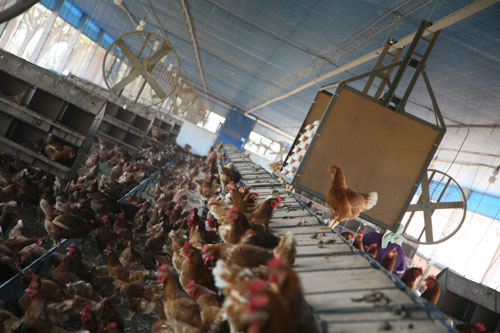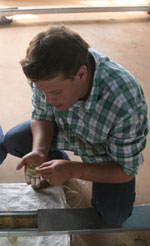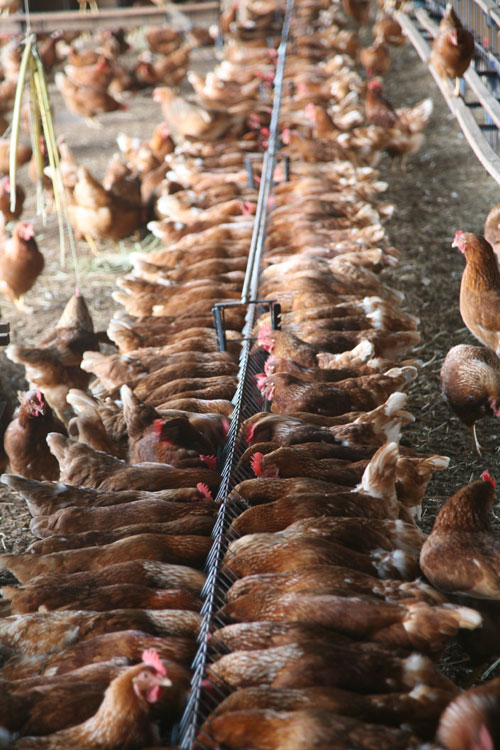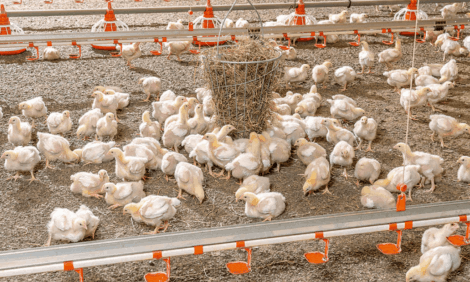



Interview: Murilo Quintiliano, FAI do Brasil
FAI do Brasil is a farm with a difference; it was created to demonstrate that environmentally and ethically sound agricultural practices can be economically viable. Ellen Hardy meets Executive Director Murilo Quintiliano to find out more.
Part of Benchmark Sustainability Science, FAI do Brasil operates on a 420 acre (170 ha) site near Jaboticabal in São Paulo State. As well as a 10,000 egg per day operation designed to spur on the Brazilian cage-free egg industry, FAI do Brasil farms 120 beef cattle, 300 sheep, and is building a state-of-the-art tilapia hatchery. Murilo Quintiliano joined FAI in 2007. Murilo has experience working with some of Brazil’s leading livestock companies, implementing best practice handling techniques on-farm, during transportation and pre-slaughter. Murilo is also a Principal Consultant for Benchmark Group’s sustainability programme.

What are your main priorities as FAI do Brasil’s Executive Director?
Our main priority is to develop production systems that can cope with the rapid growth in demand for quality food, while taking in account the economical, ethical and environmental aspects. We aim to be known for showing producers, consumers, retailers and all stakeholders what is important in terms of sustainable food sourcing.
We are now focusing on fully reliable and replicable cage-free egg production as a model for the egg producers to follow. We are doing the same with other species: beef, sheep and fish.
How is Brazil’s poultry market currently developing?
We are still growing, not only internally but also externally. This means the entire chain must cope with the varied demands of consumers. The way I see it, the demand for productivity is increasingly taking into account not only economic gain, but also environmental and ethical needs. This is the key to success.
The farm’s layer hens are kept cage-free. How common is this in Brazilian commercial egg production?
We estimate that less than 1 per cent of total egg production in Brazil is currently produced like this. But with big companies coming to need this type of source for their products, and also the consumers understanding the importance of more welfare-friendly products, I believe that this is about to change.
What particular challenges do Brazilian farmers face who seek alternatives to intensive production systems?
As in any other country, change is the most difficult part. To change the status quo with a strong and reliable message based on good science and technology is the way to do it. For years people spread the message that alternative systems do not work, mainly because of the economic aspects. We believe that there are alternatives. Our results are showing good productivity with higher quality, which calls the attention of producers to join us on this journey.
How much demand is there for enhanced hen welfare from Brazilian consumers?
Research has shown that 87 per cent of Brazilian consumers believe that animal welfare in general is important or very important. This gives us a clue to the potential for growth. Providing the right information about what welfare is and how it can be provided is a challenge that we face every day.
How does FAI hope to influence other Brazilian egg producers?
With good information and on-the-ground solutions that show not only what to do but how to do it. Nice speeches do not work as well as dirty boots on the farm.
You have worked at FAI for almost ten years. What have been your biggest achievements?
From my perspective, being able to create a strong platform for the growth of other Benchmark companies in the country. We understand the region and its challenges, and with the global experience of our team we are a unique company that can deliver solutions to several stakeholders in the food supply chain. We receive calls and requests every day from independent farms and big multinational companies who are interested in our work. This is the main gratification for me.
How do you see the poultry programme developing?
We still have a long way to go. We are now focusing on improving our feeding facilities and egg packing house, and we expect to have more sheds in the near future. This will give us the opportunity to deliver even more results for the farms who want to start a cage-free egg production system.

This article was originally published in the January 2017 edition of The Poultry Site Digital. For more, read other articles from the issue by clicking here.
April 2017











